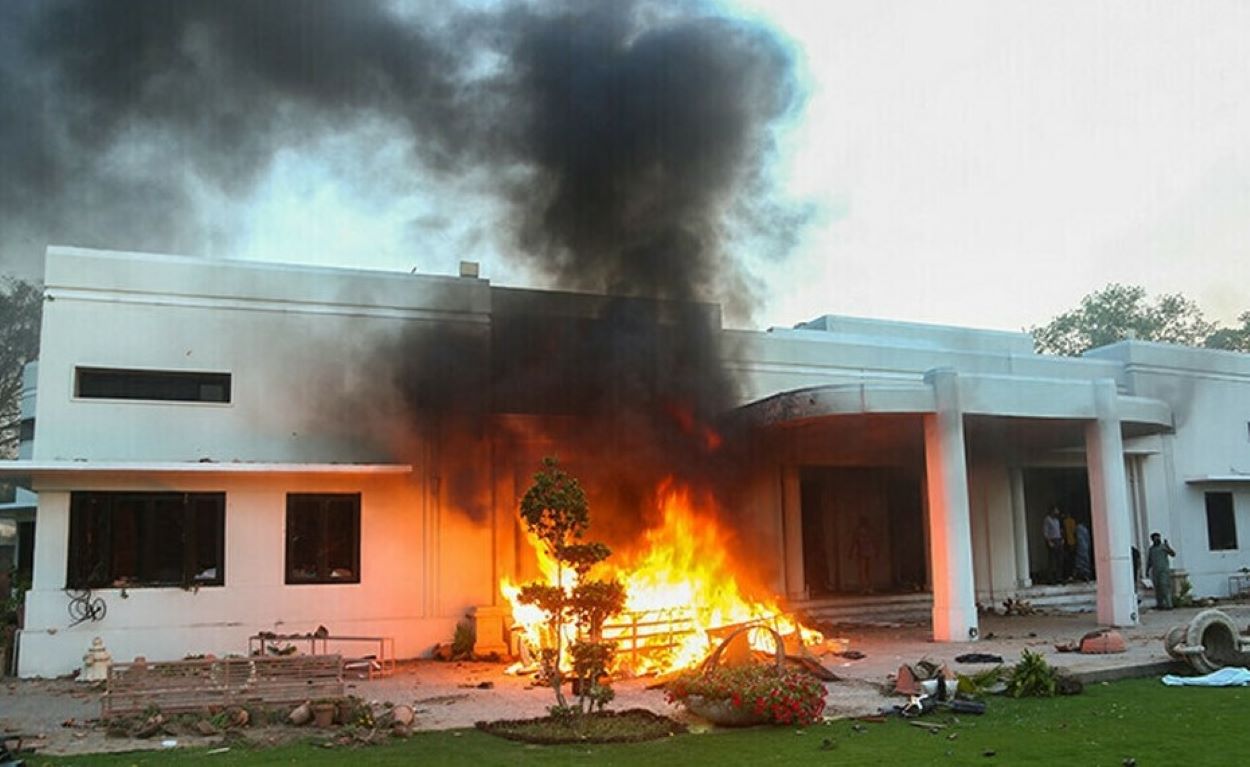More than ten months after their arrest, the fate of numerous PTI activists detained in military custody remains unresolved, with the Supreme Court still to decide on their case related to an alleged attack on military installations on May 9.
Speculation about internal strife within the apex court has arisen due to the court’s delay in making a decision. Additionally, the legal strategies employed by the petitioners have not expedited the case resolution.
Complications began when Justice Sardar Tariq Masood was challenged, leading to his withdrawal from the bench, which stalled progress for several months. The petitioners’ counsel later suggested the issue be handled by a committee for forming a larger bench, a move the bench seemed to favour.
Counsel for a petitioner noted, “We only needed to convince three judges in the six-member larger bench to sway the outcome in our favour potentially. Unfortunately, most of the petitioners did not understand the situation and pushed for expanding the bench.”
A lawyer highlighted that it’s the bench’s responsibility to expedite the decision in this case, suggesting that the bench might have intended to delay proceedings.
The Supreme Court Practice and Procedure Act 2023 has suspended a crucial judgment against the trial of civilians by a six-member larger bench. The choice of judges for this case has raised concerns, particularly why a bench of the most senior judges wasn’t chosen for the larger bench overseeing the government’s Immediate Court Actions (ICAs).
On April 24, the larger bench deferred the issue to a committee for deliberation on forming the bench.
Some bench members desired to scrutinize military court decisions to ensure adherence to due process under Article 10-A. Justices Syed Mansoor Ali Shah, Munib Akhtar, and CJP Isa are part of this committee. However, Justice Shah is unlikely to influence the bench’s constitution due to his prior recusal.
Former additional attorney general Tariq Mahmood Khokhar pointed out that delays in military court cases were unreasonable and potentially unlawful due to failure to decide within a reasonable timeframe.
Khokhar remarked, “After May 9, those who believe they have a right and duty to retaliate benefit from the delays; the sufferers are those targeted for retaliation.”
He criticized the Supreme Court’s interim measure allowing the continuation of military court proceedings as disproportionately harsh and terrifying for those facing these courts.
Khokhar also emphasized that trying civilians in military courts conflicts with Pakistan’s international human rights obligations and falls outside the constitutional democratic order.
Advocate Abdul Moiz Jaferii described the handling of the military court appeal as a travesty. He pointed out, “Victims feel their incarceration is due to the Supreme Court’s failures, not their captors.”
Jaferii stressed that the focus should be on these individuals’ illegal initial detentions, noting that 20 who were released had been wrongly penalized.
He also highlighted procedural mishandling, “In appeal, we saw a judge initially refuse to recuse, suspend the judgment, and then cause further delays after recusing a month later, yet the suspension remained.”
Observers noted that the trials of civilians in military courts were a test for the Supreme Court, with the current handling tarnishing the apex court’s reputation, especially under the current CJP.
Barrister Asad Rahim Khan criticized the new bench for failing to reach a decision, undermining the original clear verdict.
Background details reveal the case reached the apex court in June last year, led by ex-CJP Umar Ata Bandial and with a nine-member larger bench. Issues arose over bench composition and participation, leading to multiple delays and adjustments in bench structure. This highlights significant procedural complexities and legal challenges in addressing trials of civilians by military courts.






